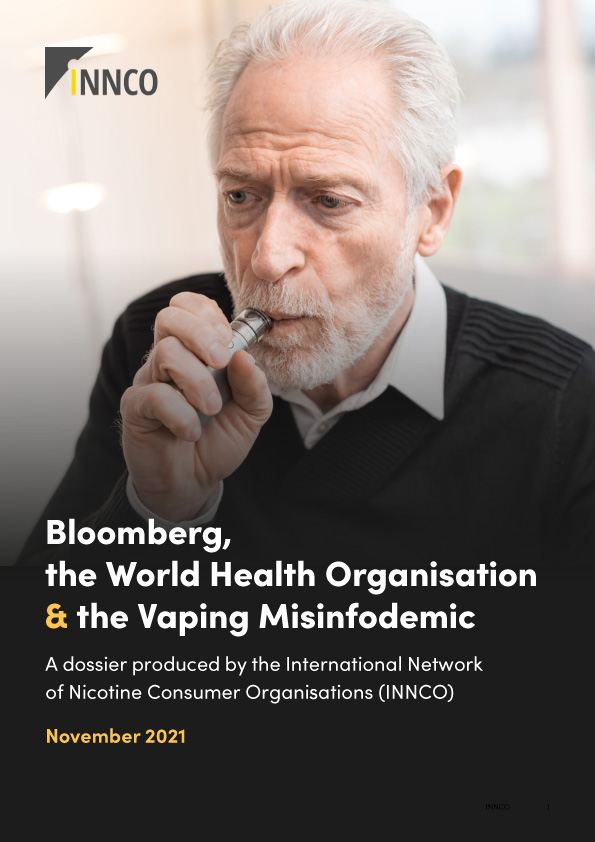Bloomberg, World Health Organisation and the Vaping Misinfodemic

The WHO and Bloomberg have both made clear their steadfast opposition to safer nicotine alternatives despite growing evidence of lower harm and efficacy for smoking cessation.
INNCO has produced a dossier which gives 9 reasons why major questions need to be asked on the
anti-vaping stance of both parties. It calls on governments around the world to hold to account their perspectives, relationship, and actions in relation to tobacco control.
Read all about it by downloading a free copy of the dossier:
WHO and Bloomberg fail to distinguish between smoking addiction and nicotine dependency,
deliberately lumping combustible cigarettes and safer e-cigarettes in the same category
The controlling nature of WHO-hosted Conference of the Parties (COP) events which determine how
international tobacco control policies are implemented at a country level across the globe to
address the fact that 1.1 billion people still smoke worldwide and 8 million die every year from
tobacco-related diseases.
EVALI – dubbed the fake health crisis – but still referenced by WHO in its public-facing Q&A on
nicotine vaping products in response to the question as to whether e-cigarettes cause lung injuries
Allegations that Bloomberg is influencing tobacco control measures in the Philippines
Bloomberg and WHO continue to turn a blind eye to the ever growing recognition for vaping as a far
less harmful option for the 1.1bn smokers around the world
WHO and Bloomberg’s anti-vaping stance described as as “fundamentally flawed”, “bizarre”,
“non-sensical, “dangerous”, “hypocrisy”, “ignorant”, “opaque”, “undemocratic”, “unaccountable” and
“pathological”.
WHO’s tobacco control effort is akin to one American billionaire anti-vaxxer funding most of the
WHO’s global vaccine efforts.
100 experts across the world slam WHO in open letter for “rejecting a public health strategy that
could avoid millions of smoke-related deaths”